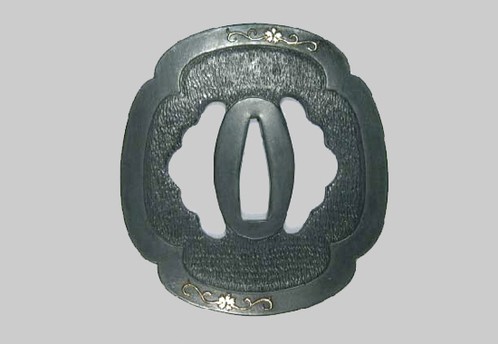

More informations about this product
Mokko Gata (Quadrilobate) tsuba, design of Kasuga Karakusa (春日唐草), rounded border by Maru Mimi.
The Karakusa, Arabesque, is a plant imported from China during the Nara period (710-794).
Arabesques represent a plant growing, growing and spreading endlessly in all directions.
It has become a symbol of prosperity and longevity.
Higo Zogan inlay on the rim.
The pin motif represents the 'Yogo No Matsu' (影向の松), a sacred pin from Kasuga temple. The legend says that the deities of the Kasuga temple descend to earth via this pin. During the annual Kasuga Wakamiya Onmatsuri festival, ancient dances, artistic performances and ceremonies are held in front of this sacred tree.
This tree was used as an example for Noh theater sets throughout Japan.
Kasuga Taisha 春日大社 is a Shinto shrine in the city of Nara, built in 768. This shrine is related to the Fujiwara family, one of the most powerful historical families in Japan with the Taira, Minamoto and Tachibana.
Items that may interest you
Share your opinion
error Your review appreciation cannot be sent
feedback Report comment
check_circle Report sent
error Your report cannot be sent